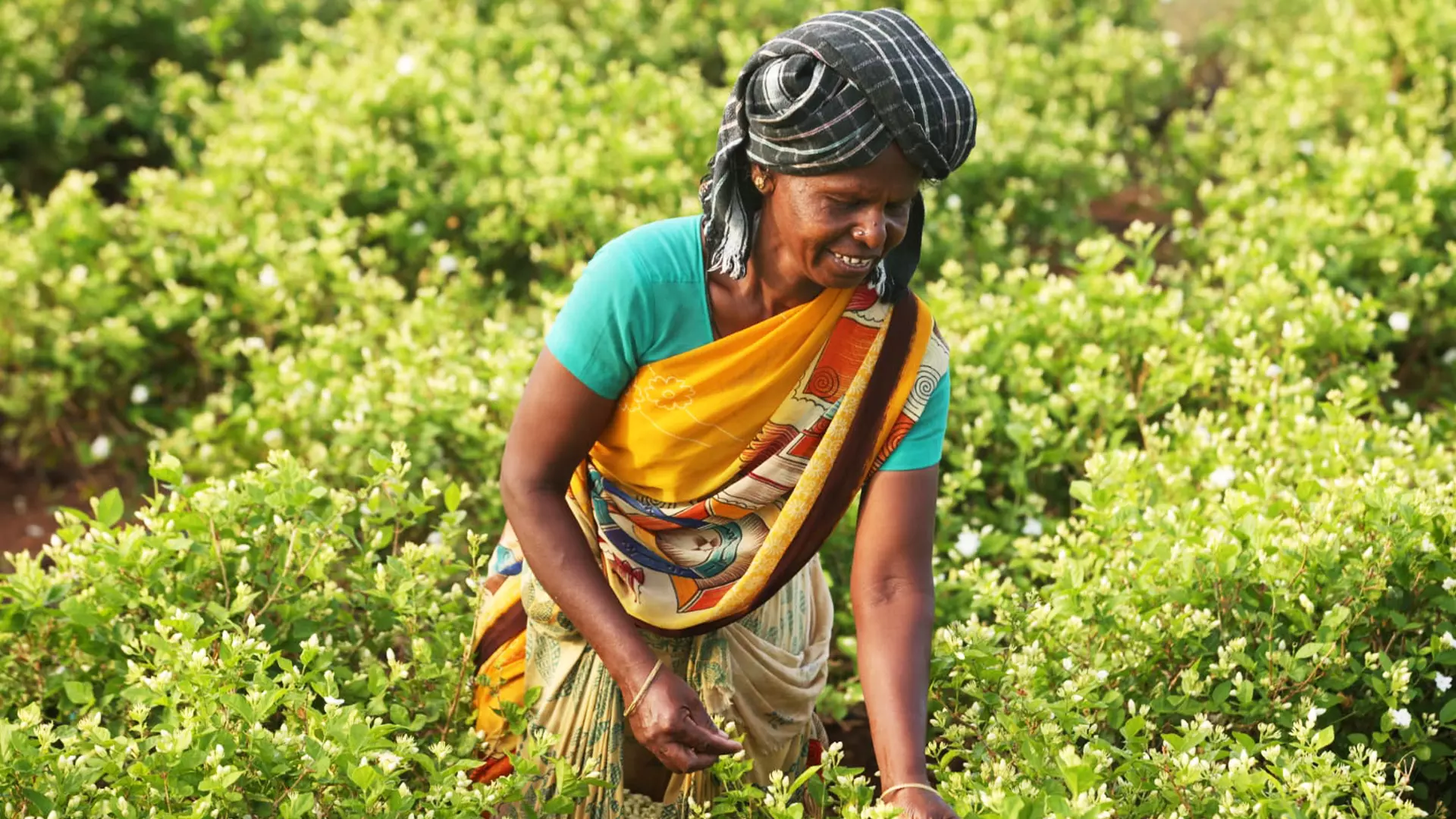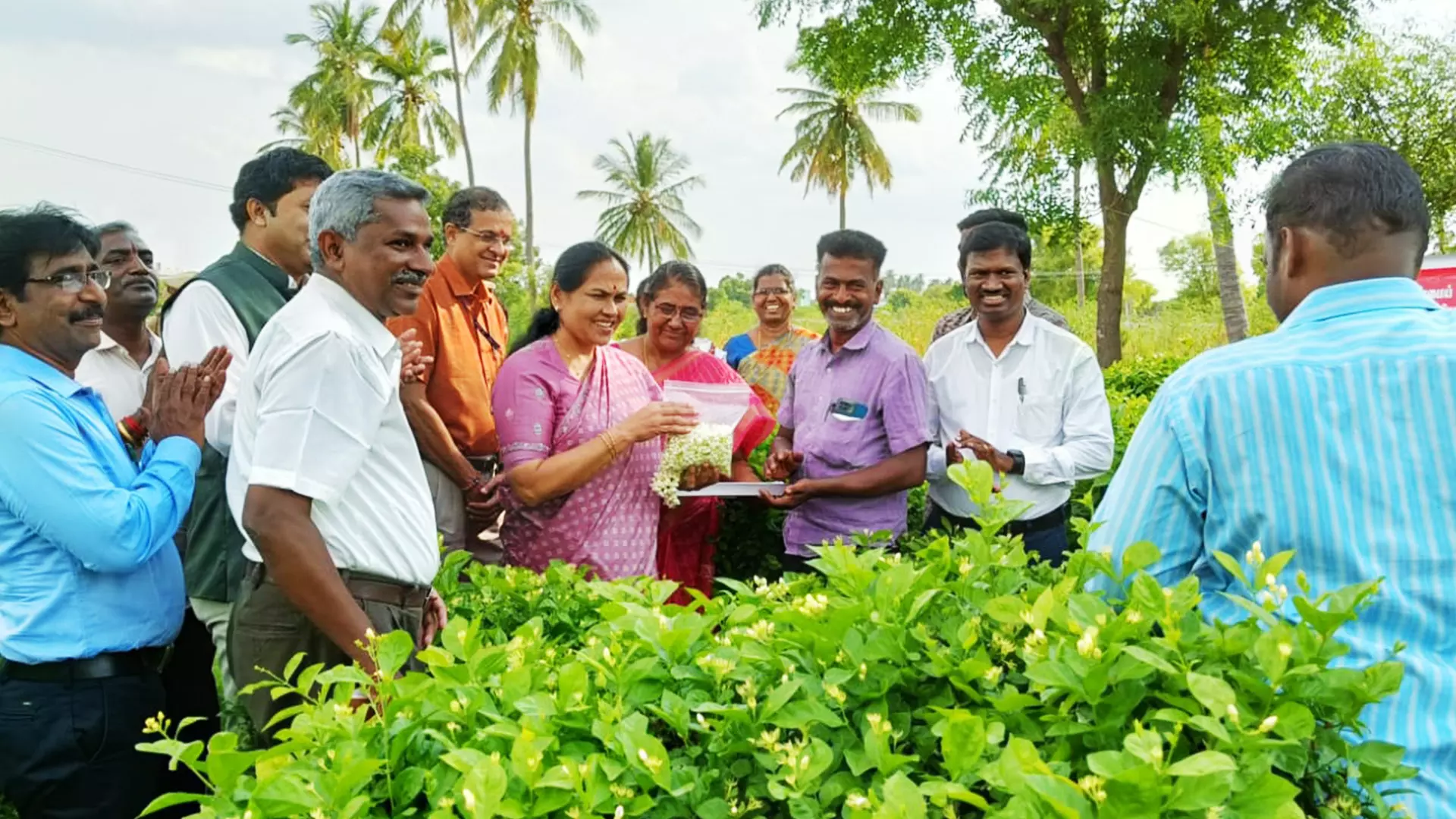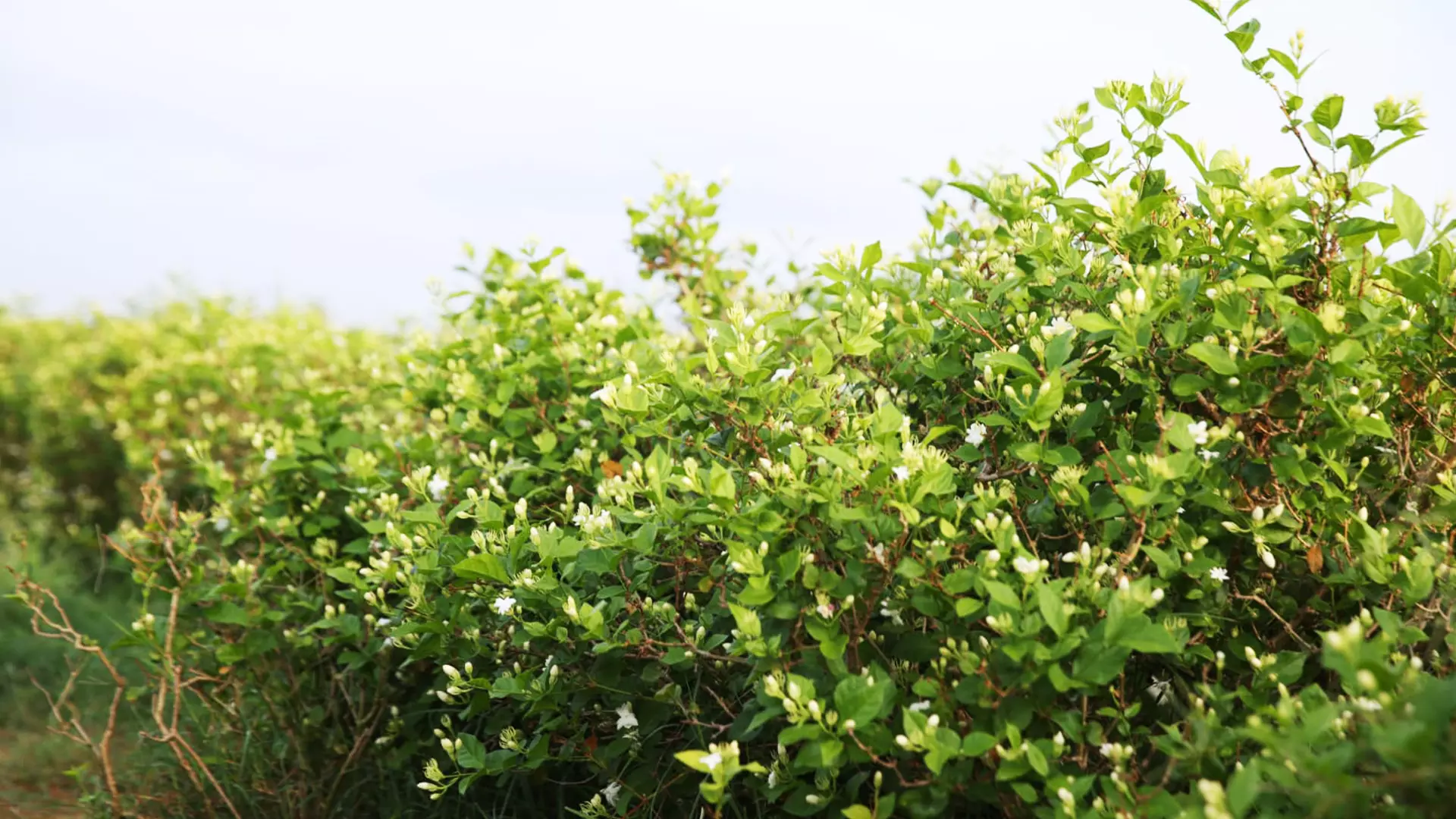
- Home
- India
- World
- Premium
- THE FEDERAL SPECIAL
- Analysis
- States
- Perspective
- Videos
- Sports
- Education
- Entertainment
- Elections
- Features
- Health
- Business
- Series
- In memoriam: Sheikh Mujibur Rahman
- Bishnoi's Men
- NEET TANGLE
- Economy Series
- Earth Day
- Kashmir’s Frozen Turbulence
- India@75
- The legend of Ramjanmabhoomi
- Liberalisation@30
- How to tame a dragon
- Celebrating biodiversity
- Farm Matters
- 50 days of solitude
- Bringing Migrants Home
- Budget 2020
- Jharkhand Votes
- The Federal Investigates
- The Federal Impact
- Vanishing Sand
- Gandhi @ 150
- Andhra Today
- Field report
- Operation Gulmarg
- Pandemic @1 Mn in India
- The Federal Year-End
- The Zero Year
- Science
- Brand studio
- Newsletter
- Elections 2024
- Events
How off-season jasmine is adding fragrance to lives of Madurai women farmers

Approximately 12 countries, including Canada, the UK, UAE, USA, Malaysia, and Singapore, import jasmine from Madurai for decoration in temples, weddings, and other auspicious ceremonies.Thirty-year-old Alagumeena Jeyaganesh of Madurai for the first time paid the school fees of her two children — aged 11 and 6 years — without taking any loan this year.This was made possible after...
Approximately 12 countries, including Canada, the UK, UAE, USA, Malaysia, and Singapore, import jasmine from Madurai for decoration in temples, weddings, and other auspicious ceremonies.Thirty-year-old Alagumeena Jeyaganesh of Madurai for the first time paid the school fees of her two children — aged 11 and 6 years — without taking any loan this year.
This was made possible after Alagumeena worked hard during the off-season. Alagumeena busied herself cultivating jasmine on her two-acre farm, which provided not just good profits but also allowed her to pay the school fees of her children from her pocket.
What powered Alagumeena’s journey towards financial independence is the training provided by the Tamil Nadu Horticulture Department in 2021. The training equipped her with the necessary know-how on off-season jasmine cultivation. Close to 1,700 hectares in Madurai is currently under jasmine cultivation, producing almost three tonnes of flowers exported to international markets. The Tamil Nadu Horticulture Department has been training women in particular in off-season jasmine farming.

Close to 1,700 hectares in Madurai is currently under jasmine cultivation, producing almost three tonnes of flowers exported to international markets. Photos: Pramila Krishnan
Approximately 12 countries, including Canada, the UK, UAE, USA, Malaysia, and Singapore, import from Madurai for decoration in temples, weddings, and other auspicious ceremonies. However, export firms run out of supply as the availability of flowers is very low during the off-season months. Now, with small farmers like Alagumeena taking up off-season cultivation, the horticulture department hopes to bridge the gap in the coming years.
Like Alagumeena, around 200 farmers in Madurai underwent training and are currently engaged in the off-season work. The 200 jasmine plants on Alagumeena’s farm produced about 60 kilograms of flowers during the seasonal months from June to September. The plants yielded just 10 kgs from October to February. However, the earnings from the lower produce in the off-season gave substantial returns due to higher demand in the local and international markets.
One kilogram of jasmine is sold at about Rs 250 to Rs 500 during the regular months, whereas the same quantity can fetch up to Rs 3,500 per kg during the off-season months.

Farmers being trained in off-season jasmine cultivation by officials of the Tamil Nadu Horticulture Department.
“Initially, I was a little hesitant because I thought pruning jasmine plants in the off-season might affect production during the regular season. But I underwent training to care for the plants, use manure on time, and package flowers with care to qualify for the export market,” Alagumeena told The Federal.
The demand is not just from overseas but in India too.
Alagumeena got an assignment to string 10 kgs of jasmine into a 40-foot flower roll to decorate a church in Coimbatore during off-season. The work earned her Rs 11,000. The same work during the regular season would have given her just Rs 3,000.
“We sold one kg of malli for Rs 700 that day. I engaged 12 women to string the flowers in two hours and sent the packed product in an icebox. The customer was very happy and paid immediately. It was my first assignment and it filled me with a new confidence,” said Alagumeena.
Inspiration spreads to larger farmers
A. Revathi, deputy director of the Horticulture Department in Madurai, told The Federal that many female farmers are showing interest in off-season cultivation, which ensures higher profits, and reduces their workload.
“We are focused on creating an integrated cluster to increase production and expose farmers to better marketing opportunities. The working hours in the off-season are fewer compared to the regular months, as the quantity of flowers is high in the latter period. In many farms, owners and their family members pluck and string flowers, saving money by not hiring workers. While the investment might be slightly higher, it is usually compensated by reduced labour costs,” she said.
Deepika Navaneedhan, another successful off-season farmer in Madurai, relies on her one-acre jasmine farm for all her needs. The surge in profits during the off-season surprised her.

Approximately 12 countries, including Canada, the UK, UAE, USA, Malaysia, and Singapore, import jasmine from Madurai for decoration in temples, weddings, and other auspicious ceremonies.
“We received just 10 kgs of flowers in the off-season, which would be about 60 kgs in the regular season. The price skyrocketed last year in the off-season, and we sold a kg of flowers for Rs 3,500, whereas the price was just Rs 250 in the regular season. So, these days, I focus on off-season cultivation,” said Deepika.
Initially, a couple of small women farmers came forward to try their hand at off-season cultivation, and the practice is gradually spreading among medium and large farmers. The official at the horticulture department said that some medium farmers with 10 to 15 acres of farmland have appeared for training in recent months.
N Varun Kumar, a dealer who connects farmers and export firms in Madurai, says that timely packaging of flowers and using proper packaging materials play a significant role in delivering quality products to the international market.
“There is a big demand for jasmine flowers in various countries. In some cases, flower packets are rejected due to a lack of freshness and if the flowers are in a rotted condition. So plucking flowers on time, stringing, and packaging are major concerns. Focused training in these areas would provide good returns,” said Varun Kumar.
Will off-season cultivation affect plants?
Though off-season cultivation brings in huge profits, some farmers are still worried whether it would affect the health of the plant in the long run. Experts allay the concerns.
“There is no on-season and off-season cultivation for plants like jasmine. Flowering plants have been planted and cultivated for business for several hundred years now. We have planned cultivation based on our convenience, so there is no harm in changing the cultivation pattern. The plants had adapted to particular months for all these years and will now get used to the new period. Flowers that bloom in the wild without any manure and protection produce seasonal flowers. In the case of horticulture farming, there is no question of regular and off-season; we tend to produce for market demand,” renowned taxonomist D Narasimman, who is also an expert member of the committee on biodiversity under the government of Tamil Nadu, said.
Gifting flowers industry blooming in India
Experts say the online gifting market, particularly for flowers, could be worth over Rs 2,000 crore a year in India. Florist R Sundar says this is just the beginning because the culture is picking up pace.
“Presenting bouquets at weddings and birthday parties is in its budding stage now. Gifting flowers as bouquets for Valentine’s Day, birthdays, marriages, and Women’s Day has become popular. Flowers like roses, carnations, lilies, orchids, and chrysanthemums are mainly used in bouquets. Jasmine has a special place in wedding garlands and floral makeup for brides and special guests. Due to its short span of freshness, jasmine is not used in bouquets. However, there is a big demand for jasmine at weddings abroad,” he said.
Sundar sells a minimum of 20 bouquets a day in Nilgiris, and the quantity goes up to 50 or 100 on special occasions. He also points out that many people order flowers online these days as a surprise gift. “The industry is just blooming now. It would be great to include our homegrown flowers in gift packages,” he said.
